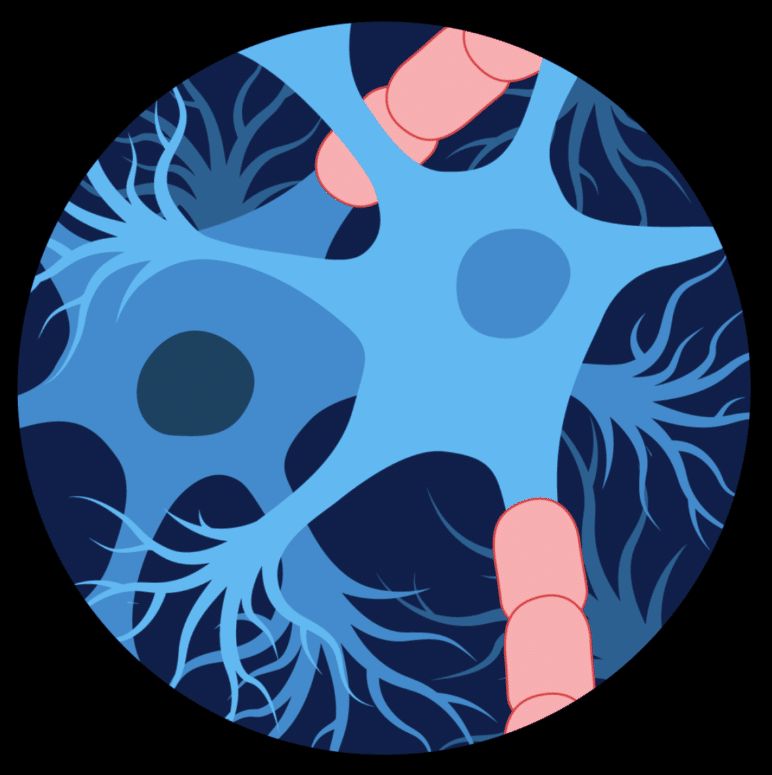
People diagnosed today can live a long life free of disability, as UCSF research ushers in a golden age of MS care.
generation ago, most people with multiple sclerosis could expect to rely on walkers and wheelchairs or be limited to their bed within 15 years of diagnosis. Today, UC San Francisco’s discoveries are keeping millions with MS healthier for longer – many disability-free. Now, the university is paving the way for an MS cure in our lifetimes.
But the breakthrough almost didn’t happen. “Biologically implausible,” is what the National Institutes of Health’s rejection letter said. It was the late ’90s and UCSF Neurology Professor Stephen Hauser, MD, and team had applied for federal funding for the first clinical trial of the new medicine, rituximab, as a potential MS treatment.
The study wouldn’t just test a new drug, but a revolutionary new theory about MS’ inner workings. So outlandish was the idea that the largest public funder of scientific research said it couldn’t be done.
The rejection “hit like a ton of bricks,” Hauser remembered in his 2023 memoir, The Face Laughs While the Brain Cries. But if Hauser’s team proposed another trial, following conventional wisdom, the institutes assured him there was money.
The message was clear: “Just forget your last 15 years of work, kid, and do what we think.”

to a new multiple sclerosis drug that targets B cells in the body. Photo by Steve Babuljak
‘I decided right there that this would be my life’s work’
Two decades earlier as a young medical resident, Hauser treated 27-year-old Andrea. A recent Harvard Law graduate, Andrea was a rising star in President Jimmy Carter’s administration. Then, as sudden as a lightning strike, her behavior became erratic. By the time Hauser saw her, she was propped up in a hospital bed, the right side of her mouth drooping, saliva pooling at the corner.
“How are you,” he remembered asking her. Andrea tried to speak but her words came out garbled. A single tear rolled down her face.

MS is a disease of the brain and immune system. Our brains contain a network of billions of neurons, nerve cells that send messages telling our mouth to speak, our legs to move and our lungs to breathe. Each neuron is wrapped in myelin, a protective coating like the plastic sheath around a copper electrical wire. But with MS, our immune system – which normally protects us against germs – mistakes myelin for a foreign invader. This case of mistaken identity prompts an all-out assault. The immune system attacks the myelin, short-circuiting our neurons like frayed power cords.
“Over time, the connections between nerves are lost, nerve cells die. MS robs people of basic functions we take for granted – vision, sensation, motor strength … and sometimes, as with Andrea, even the ability to speak, eat or breathe independently,” Hauser said.
CLICK HERE to continue reading and watch a video
Stay informed with MS news and information - Sign-up here
For MS patients, caregivers or clinicians, Care to chat about MS? Join Our online COMMUNITY



